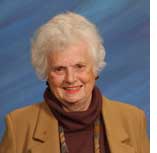By Natasha Josefowitz

LA JOLLA, California –We hear a lot about how dual-career couples manage their responsibilities at home when both work full-time. We also read a great deal about the conflicts women experience juggling children and a career, but there is very little written about the couple that is thinking about retirement.
It is very difficult to function without a schedule when for fifty years one was set for you. It is important for people who have worked all their lives to continue with regular activities, be they golf, politics, board memberships, community volunteering, or simply reading, if that provides satisfaction. For most people, having a routine after retirement provides needed structure. I have always believed that one does not retire from something but to something. In other words, one should never stop work without a plan to pursue specific activities.
If she has been a full-time housewife and he retires, that can begin their golden years of new, shared interests: travel, family, hobbies. Or, it can also be that he’s bored and she feels he’s always underfoot. There is an old joke: “For better or worse, but not for lunch.”
But there is a new problem emerging: what if both the husband and wife have worked full-time, or perhaps she started a new career after the children were grown?
He may be ready to retire, and she may be in the midst of her most productive years. After having stayed home, she is looking outward, whereas he, after having been out there, is looking inward towards home and family.
Difficulties can emerge when women retire after their husbands, and about one-third do so. Because women are often younger than their husbands and because many have started work later in life, the decision to stay in the job market may be an economic one, the accruement of a good pension and bigger Social Security benefits.
Also, while he may feel burned out and glad to be away from the daily pressures of work, she may be at the crossroads of her greatest opportunities. He has a legitimate wish to be able to share his retirement years with his life-long companion, while she has an equally legitimate wish to be able to accomplish more.
It is also important to note that after a man has been the breadwinner all his life, seeing his wife bringing in the money may be difficult to accept. A man’s identity is so often tied to work that losing that status could be traumatic and he may be at loose ends until he feels engaged in some meaningful or new rewarding way.
Couples need to start thinking about this dilemma before it is upon them. Will he be satisfied to market and cook while she’s at work? Will he be lonely or will he enjoy this time on his own? Will she feel guilty about the role reversal, about abandoning him, or will she be thrilled to come home to a (hopefully) clean house and a hot meal?
Couples must be clear about their expectations, their needs, and negotiate the compromises they can live with before the decisions are upon them. If this is discussed ahead of time, he may want to arrange for a consulting job after his retirement or she may prepare herself for part-time work. They may also decide that if he stops working and she doesn’t, they will manage their time together around weekends, with decisions on how to deal with housekeeping tasks. Studies have shown that too often after retiring, men become depressed and/or suffer from a variety of physical ills. This is why it is so important for couples to have plans that will be conducive to continued satisfaction with one’s activities, with one’s life.
It is interesting to note that the man gone all day and the woman at home is much less of a problem than the other way around, since this may have been the case when the children were still living at home. Also, women have had more experience dealing with being home alone and are better at being self-sufficient and using resources such as family and friends for companionship and help when needed.
A pending retirement is a time for honest reappraisal of one’s life’s goals, a realistic look at one’s past achievements, while still being a time to accomplish what has been set aside in pursuit of a livelihood.
It is no easy task, but it may be the most rewarding time of a couple’s life together.
*
Josefowitz is a freelance writer based in La Jolla. This column previously appeared in the La Jolla Village News. She may be contacted at natasha.josefowitz@sdjewishworld.com